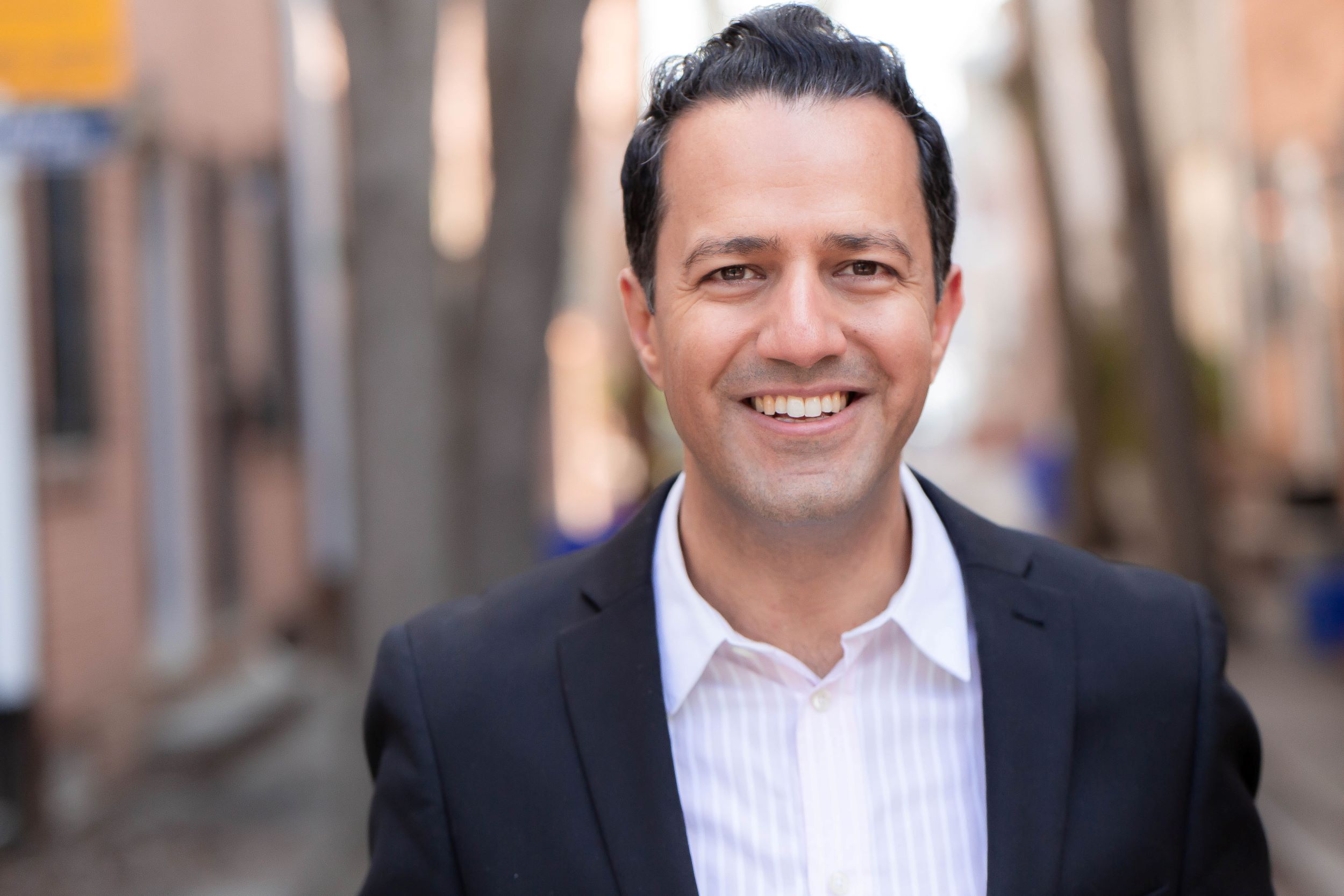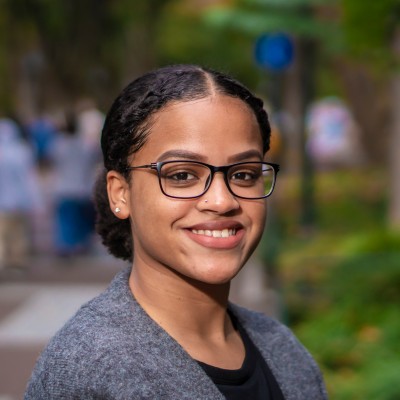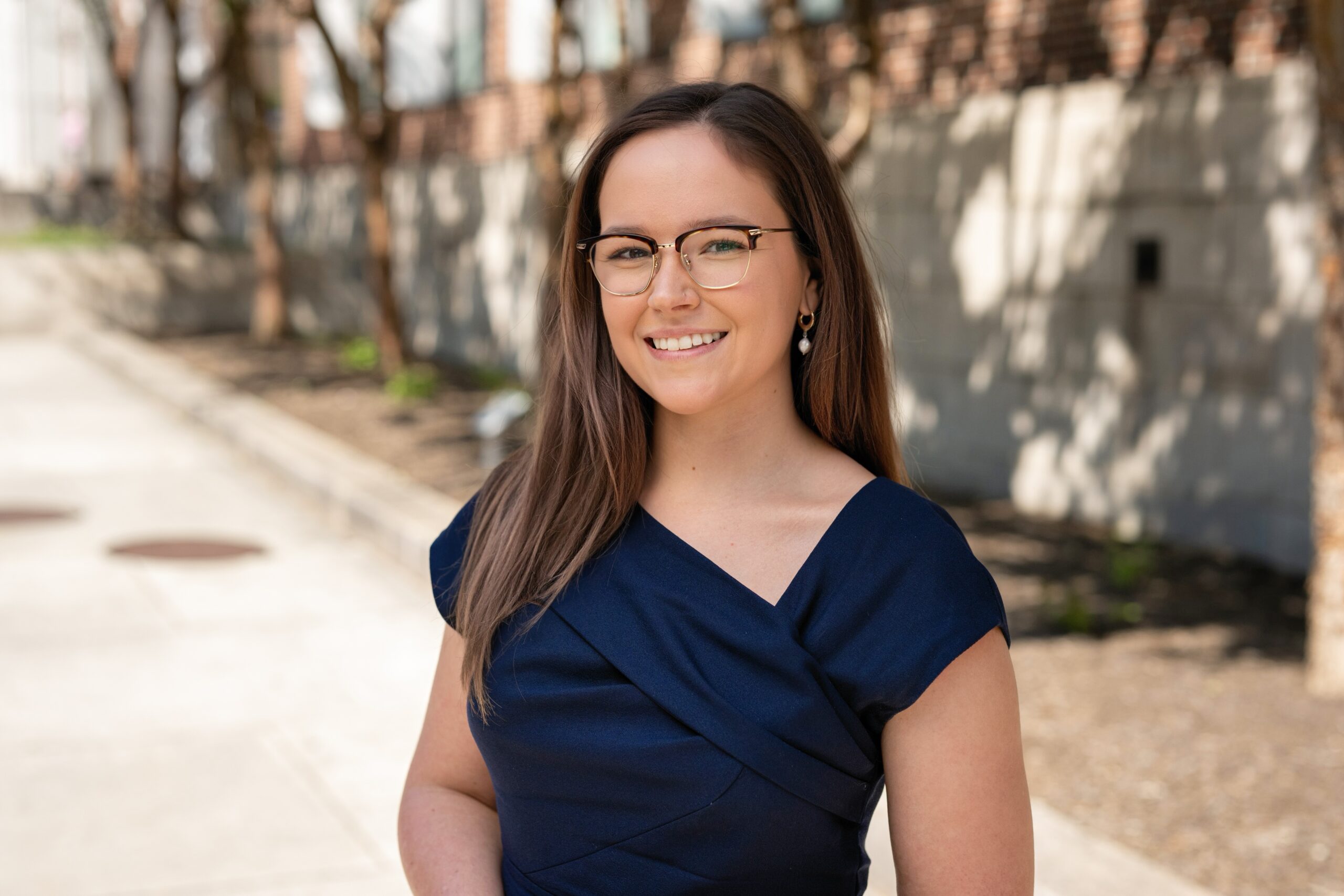About Penn First Plus
Penn First Plus is the University of Pennsylvania’s hub for efforts to make our amazing educational community more accessible at intersections of social and economic background. Specifically, we expand access to the Penn experience for currently enrolled undergraduates who are the first in their families to pursue a bachelors degree in the United States of America or at an institution with the resources and opportunities of a highly selective private research university. Students who identify as limited-income or coming from modest financial means are also part of our community of scholars.
Reporting to the Deputy Provost, and working in close partnership with units in University Life, Student Engagement, and Financial Aid, Penn First plus is uniquely situated to advocate for students and collaborate with faculty and staff across all facets of the university.
In that capacity, Penn First Plus:
- Collaborates with the undergraduate colleges and their faculty on initiatives to promote more impactful pedagogy, accessible curricula, and holistic advising for undergraduates
- Provides programming that empowers students to map individualized pathways through their Penn experience
- Partners with colleagues in Student Registration and Financial Services and across campus to find ways to make Penn’s academic and extracurricular opportunities more affordable and accessible
- Promotes the importance of socioeconomic diversity in academe
Terminology
First-generation
First-generation in this context is used to describe any student whose educational background meets one of or all of the following criteria:
- One or more of your parents or guardians had not completed their bachelor’s degree at the time of enrollment at Penn or took more than 6 years to complete said degree.
- One or more of your parents or guardians did not complete their bachelor’s degree in the United States.
- You are the first person in your family to attend a research university with the resources and opportunities a Penn education provides.
- You have a strained or limited relationship with the person(s) in your family who hold(s) a bachelors degree.
Limited-income and modest financial resources
Income and the opportunities to which it provides access varies significantly by geography, cost of living, and family size. Perception of income level may also vary based on the perceived wealth of the people around you. Because half of the Penn student body does not qualify for need-based aid, perceptions of income and the norms around class status can be confusing. Therefore, while we may abide by financial aid policies in limiting access to funding opportunities, we do not police terms such as lower-income, limited-income, and modestly resourced given their subjectivity in this space.
Highly aided
This term was developed by Student Registration and Financial Services as a tool to help us identify those students from communities where financial resources are the among the most limited and prioritize supplemental funding opportunities within the limitations of the university resources. Currently, highly aided students are all students who have family incomes below $75,000/year. As more resources become available, we hope to expand this circle to include more students. If you are a highly aided student, this information has been communicated in your award letter and is available when you log in to review your financial aid award.
People
-

Marc A. Lo (he/him) is the inaugural Executive Director of Penn First Plus. Marc is responsible for providing leadership for Penn’s work to reimagine itself and become more inclusive of its increasing socioeconomic diversity. He is enthused by the opportunity to craft Penn First Plus as the hub for all initiatives to change how we teach, advise, and mentor students who may be the first in their families to pursue a bachelor’s degree and come from modest financial means. On a day-to-day basis, Marc meets with and advocates on behalf of individual students and the entire Penn First Plus population. Marc was the first person in his family to complete his bachelors degree, receiving Pell Grant support while working multiple jobs at Northeastern University as an undergraduate. In his spare time, Marc enjoys meditation, yoga, hiking, photography, and food-related adventures. You may contact Marc via email at lomarc@upenn.edu or phone at 215-898-7947. As a scholar, Marc holds degrees in Organizational Communication, and Higher Education from Northeastern University and New York University, respectively. His scholarship explores questions of campus climate for diversity and their relationship with student learning as well as topics of inclusive pedagogy and curricula. Samples of his work may be found in the Journal of College Student Development, Research in Higher Education, the Journal of Higher Education, and Change: The Magazine of Higher Learning.
-

Russell Composto is the Bozza Family Penn First Plus Faculty Co-Director, Howell Family Faculty Fellow and Professor of Materials Science and Engineering with secondary appointments in Chemical and Biomolecular Engineering and Bioengineering. Our research applies principles of polymer physics and chemistry to engineer the assembly-structure-property relationships in soft matter. This work was recognized by the National Science Foundation with a special creativity award. Composto was PI of “Research and Education in Active Coatings Technologies (REACT) for the Human Habitat”, including scientists from Penn, US partner schools, industry and France. REACT was an interdisciplinary research and education program investigating water management, infectious disease and energy generation and storage. He is currently co-PI of “Interdisciplinary Training in Data Driven Soft Materials Research and Science policy,” which trains students in autonomous experiments to accelerate materials discovery and provides an education at the interface of soft matter, data science and science policy. He served as the Associate Dean of Undergraduate Education in the School of Engineering and Applied Science (SEAS) at Penn (2015-2018) before taking on the role of co-faculty director of P1P. Composto teaches classes in soft matter as well as a new course in energy technology and policy in collaboration with the Kleinman Center for Energy Policy. Over 125 undergraduates have performed research in our laboratory with many pursuing PhD studies in engineering and related fields. Composto received the Marshall Mentoring Award from the North East Association of Graduate Schools, the Provost’s Award for Distinguished Ph.D. Teaching and Mentoring, and the Ford Motor Company Award for Faculty Advising.
-

Fayyaz Vellani is the Bozza Family Penn First Plus Faculty Co-Director, Faculty Director of the College House Research Program, Hill College House Fellow, and Lecturer in Critical Writing. He is a geographer specializing in geopolitics, disability studies, and sustainable development, and the author of Understanding Disability Discrimination Law Through Geography (Routledge, 2016) and the novel Tea With Ms. Tanzania (Red Sea Press, 2022). His article, “Engagement with Place: Cairo as Classroom,” which analyzes events and discourses related to the Arab Spring, won the International Award for Excellence from the International Journal of Diversity in Organizations, Communities, and Nations. Dr Vellani served from 2010-2013 as Head of Graduate Studies at the Institute of Ismaili Studies in London and has been Associate Director of Critical Writing at Penn, Director of Admissions and Financial Aid at the University of Toronto Faculty of Law, and Associate Registrar of the Yale Law School.
-

Keisha Johnson (Director, Transition Programs) Keisha Johnson is excited to join the Penn First Plus team and continue her passion of supporting and cultivating students to reach their fullest potential academically and holistically. She has over 12 years of experience managing student success programs with a special focus on access and retention as well as a scientific background in biology and soil science. As former Director of The University of Pennsylvania Knowledge is Power Program (PennKIPP), she managed a unique partnership that support KIPP alumni who attended nation-wide KIPP charter schools and now attend Penn. Prior to Penn, Keisha was Assistant Director of Science Diversity Initiatives in the Eberly College of Science at Penn State University, University Park, PA. At Penn State she co-managed a university-wide scholarship program that included a residential living learning community as well as engaged scholarship and co-curricular initiatives. She was also a former biologist with U.S. Fish and Wildlife Service Chesapeake Bay Field Office, Annapolis, MD. Keisha earned a bachelor’s degree in biology and a master’s degree in agricultural science with a concentration in water quality from the University of Maryland Eastern Shore. She completed doctoral coursework in soil science at Penn State. She enjoys the outdoors, arts, music, traveling, cooking, serving students and community as well as spending quality time with family and friends.
-

Lamesha C. Brown (she/her/hers) joined the Penn First Plus team in June 2023 as the Director of the University of Pennsylvania College Achievement Program (PennCAP). As a first-generation college graduate, from a limited-income background, Dr. Brown’s work centers around ensuring students who identify as first-generation and/or from lower-income backgrounds have access to educational opportunity. In her current role, she leads the PennCAP team in developing and sustaining a comprehensive program aimed at supporting students from their first year through graduation. She has over 10 years of higher education experience in multiple functional areas including first-generation student success, first-year experience, housing and residence life, and academic advising/coaching. She earned a B.A. in Apparel Merchandising from Washington State University; M.Ed. in Educational Leadership from Valdosta State University; and Ph.D. in Education, with a graduate certificate in Diversity, Equity, and Inclusion, from the University of Georgia. As a scholar-practitioner, Dr. Brown’s research centers students and professionals at the intersection of college generation status, gender, and race. You can find her most recent co-authored publications in the Journal for First-generation Student Success and Journal of Diversity in Higher Education. Additionally, she currently serves as an Editorial Board Member for the Journal of First-generation Student Success. Dr. Brown enjoys baking, traveling, exploring/site seeing, and spending time with her family and friends.
-

Zaida Bryant (she/her/hers) is the Associate Director of Resource and Community Engagement at P1P. Formerly, Zaida served as P1P’s Program Coordinator supporting various logistics of our portfolio including the Pre-First Year Program, academic year workshops and initiatives such as First-Gen Week, and our Gateway Student Mentorship (GSM) Program. Zaida enjoys cultivating spaces to build community for our students and increasing accessibility of various campus resources as seen through her work with our GSM Community Circles. Zaida holds a Masters of Science in Education, Culture, and Society from the University of Pennsylvania Graduate School of Education and her research interests lie at the intersections of DEI initiatives, student activism, and anti-Blackness. Previously, she also worked at Penn Career Services where she worked on their first-generation and lower-income committee, supervised Peer Career Advisors, and provided front-line support to their professional staff. Zaida holds a B.A in Anthropology from Susquehanna University. In her spare time, Zaida enjoys hiking, finding new food places to eat, and spending time at bookstores and coffee shops.
-

Cecily White joined the PennCAP team as Associate Director in Summer 2022 after a more than a decade of work in youth mentoring and advocacy. Prior to Penn, she worked for two years at Rutgers Camden as the Senior Program Coordinator, responsible for the design and implementation the Camden Fellows, a comprehensive support, counseling, and advocacy program for students with lived experiences in the child welfare and foster care system. Cecily began her career at Big Brothers Big Sisters Independence Region, working in both community and corporate mentoring. She later served as the Director of Graduate Support and College Counseling at Cristo Rey Philadelphia High School, where she worked to facilitate college access and success for the school’s students. Cecily holds a bachelor’s degree in Religion & Philosophy from Goucher college and a master’s degree in School and Mental Health Counseling from the University of Pennsylvania, where she also serves as adjunct faculty for the Graduate School of Education. She has been a Licensed Professional Counselor since 2019. As a proud Philadelphian, she loves exploring all that the city has to offer.
-

Enmanuel Martinez (Associate Director, Scholarly & Professional Development) was born in the Dominican Republic, and grew up in Camden, New Jersey. A first-generation and low-income college student, Dr. Martinez earned his B.A. in Comparative Literature and Latin American and Latinx Studies from the University of Pennsylvania. As a Penn undergrad, Enmanuel served as President of Cipactli, Penn’s Latinx Honor Society, and participated in several undergraduate bachelorette pipeline programs include the Penn’s College Achievement Program (PennCAP), McNair Scholars Program, Mellon Mays Undergraduate Fellowship, and the Leadership Alliance. After Penn, Enmanuel earned his M.A. and Ph.D. in Comparative Literature from the Rutgers University, where his graduate studies and research were supported by the SSRC-Mellon Mays Graduate Initiatives, Ford Foundation Predoctoral Fellowship, American Association of Hispanic in Higher Education (AAHHE) Graduate Student Fellows Program, Rutgers’ PreDoctoral Leadership Development Academy (PLDA), and the Modern Language Association (MLA)’s Connected Academics Proseminar. During the AY2021-22, Enmanuel held a Postdoctoral Fellowship in Penn’s Division of Student Engagement (VPSE) where he helped coordinate VPSE’s Penn MMUF, PennKIPP, and PennRSSA programs. Since August 2022, Dr. Martínez served as an Academic Counselor for Penn’s College Achievement program (PennCAP), providing academic, career, and financial counseling and referrals to PennCAP undergrads enrolled across the University’s four undergraduate schools (CAS, Nursing, SEAS, and Wharton). He also serves as a Pre-Major Advisor for Penn’s College of Arts and Sciences.
-

Sanjeevini Badigar Lokhande is an Academic Counselor at the University of Pennsylvania’s College Achievement Program (PennCAP). She is a first generation scholar practitioner and is deeply invested in the success and retention of first generation low income students (FGLI) by using engagement, academic support, workshops, motivation and cultural food. She is interested in given and cultivated identities, especially those developed through habits. She loves research and writing and has a PhD in political science. She has taught at the University of Mumbai as Assistant Professor and Temple University as Visiting Assistant Professor. She particularly enjoys introducing Penn undergraduates to the prospect of graduate school through PennCAP’s Grad School Mentoring Initiative (GSMI). She loves connecting with students and finding out what sparks their joy. She enjoys gardening, singing, sharing tea, the outdoors and connecting with students. She also loves a good laugh. She can’t wait to get to know you more.
-

Robert Jenkins is from Philadelphia, PA. Prior to his start at PennCAP, he provided in-home family therapy and individual services in the Philadelphia area. Robert attended Penn State University and has a Bachelor of Arts in Psychology and a Master’s in Counselor Education in Clinical Mental Health in Schools and Developing Communities. He is a Nationally Board-Certified Counselor. While in University Park, Robert worked as the Program Assistant Coordinator mentoring and providing resources for first-generation freshman students in the Eberly College of Science. At PennCAP, Rob facilitates educational and personal development workshops and oversees the weekly newsletter. He is dedicated to encouraging others to give an honest effort in balancing their lives, and assisting students to reach holistic success. Robert has prior experience in facilitating dialogues, group therapy, and family therapy. In his spare time, he loves to explore the city of Philadelphia, practice yoga, play tennis, and read.
-

Isabella “Izzy” Boudnik (she/her) is a dedicated advocate and graduate of the University of Pennsylvania Graduate School of Education, holding a master’s degree in higher education. She is also a proud alum of the University of Wisconsin-Madison, where she studied political science and education policy. Rooted in her own experiences as a first-generation, low-income student, Izzy is passionate about cultivating belonging for minoritized students in higher education spaces. She is particularly interested in addressing collegiate food insecurity, promoting ethical social mobility, and supporting first-generation professionals. While she is originally from Milwaukee, Wisconsin, she admits that the East Coast has grown on her since she moved to Philadelphia in 2021. In her free time, she enjoys adding to her ever-growing pile of unread books, exploring thrift stores, and buying iced lattes. She is enthusiastic about the opportunity to support first-generation students in their journey through Penn and can’t wait to meet you!
-

Ursula Gamache (she/her) is a graduate of Penn’s Graduate School of Education with an M.S.Ed. in Education, Culture, and Society. She is excited to join the PennCAP team as an Academic Counselor after serving in the role of Financial Wellness Graduate Coordinator at PennCAP since Fall 2022. During graduate school, Ursula completed a master’s thesis entitled “Removing Barriers, Opening Doors: Academic Resource Access and First-Generation, Low-Income College Student Success.” In addition to her studies, she enjoyed working as a graduate assistant organizing financial wellness events and supporting various initiatives in the Penn First Plus and PennCAP community. Ursula is originally from a small town in North Carolina and attended the University of North Carolina at Chapel Hill (go heels!), earning a BA in English Literature and Sociology. After college, Ursula served as a college advisor for high school seniors, increasing college access for underrepresented students in North Carolina. She moved to Philly to attend Penn and has come to love living in a city. In her free time, you can probably find Ursula walking her corgi, Rosie, around West Philly. She also enjoys reading about history, dancing to 2000s pop, baking cakes, and painting sunsets in her free time.
-

Evan S. Griffin (he/him) is passionate about fostering growth and development and excited to join PennCAP as an Academic Counselor. He brings a wealth of knowledge and experience from within higher education where he’s dedicated himself to supporting students and enhancing academic programs. Evan’s served as a Resident Assistant, Residence Hall Director, and a Student Success Advisor. He has assisted faculty in conducting research on educational policy. Evan’s goals include finding innovative and strategic ways to help students discover their purpose. He enjoys making a positive impact on students and colleagues he shares his time with. He does his best to exemplify servant leadership; focusing on the growth and well-being of people to help them become the best versions of themselves. He’s open to exciting challenges, and committed to contributing his expertise and adaptability to drive success in dynamic and innovative environments.
-

Alexandra “Ale” Malespin is committed to making higher education accessible, and is excited to embark on her new role as the Administrative Coordinator at Penn First Plus. Ale graduated from Rochester Institute of Technology (RIT) with a bachelor’s degree in Visual Media Photography, with a minor in Marketing. As a student at RIT, Ale was a freshman student representative for the Latin American Student Association (LASA), and later a marketing director for the ALANA Collegiate Association. Ale conducted a capstone project titled “Making Amends Through Awareness and Art”, where she highlighted the challenges that BIPOC students and professors faced in the realm of art in higher education. After graduation, she worked as a Community Outreach Coordinator for Rochester Global Connections, where she focussed on fostering relationships between international students and the RIT community. In her free time, Ale loves rock climbing and walking her dog Jesse.
-

Angela Carriero is the Administrative Assistant at PennCAP and has worked with the PennCAP and PFP staff for over 10 years. She manages all financial transactions and supervises the work study and laptop lending programs. Before coming to PennCAP, Angela coordinated a not-for-profit marketing and donations campaign and has a long-standing commitment to community service, social and economic justice, equity, and access. She appreciates the strong sense of community PennCAP inspires. Angela majored in English at her alma mater, Temple University. She hails from the Italian Market in South Philadelphia but has also spent time in Florida and the Bay area. She looks forward to doing some more traveling in the near future.